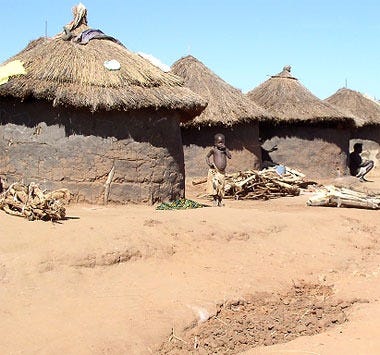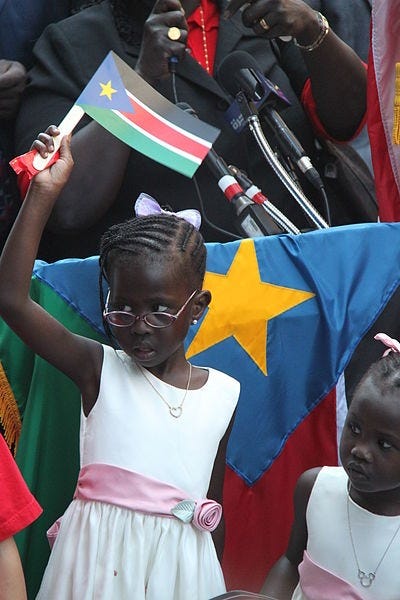🔅 Michelin Is Waking Up To African Cuisine
Weighing the Cost/Benefit of Expanding Antibiotic Use in Africa
Image of the Day
Spotlight Stories
Weighing the Cost/Benefit of Expanding Antibiotic Use in Africa

In the fight against child mortality in sub-Saharan Africa, a new study suggests that expanding the use of a crucial antibiotic could be a game-changer.
But there's a catch: it could also fuel the rise of antibiotic-resistant "superbugs."
So what do you do?
The World Health Organization (WHO) currently recommends that the antibiotic azithromycin be given regularly to infants between 1 and 11 months old in areas with high child mortality rates.
But researchers from the University of California, San Francisco argue that extending this recommendation to include children up to 5 years old could significantly reduce deaths.
It's a classic public health dilemma: do the immediate benefits outweigh the long-term risks?
The Case for Expansion: The researchers' argument is compelling. A 2018 study found that a two-year prescription of azithromycin for children in Niger, Malawi, and Tanzania cut mortality by nearly 14% in under-5s and by 25% for babies under five months old.
Azithromycin is a broad-spectrum antibiotic that targets some of the biggest killers of children in Africa, including respiratory infections, diarrhoea, and malaria.
The latest study, dubbed Avenir, focused on Niger, which had the highest under-5 mortality rate in the world in 2022. The researchers found that when azithromycin was given to all under-5s, mortality among infants was 17% lower compared to when it was only given to infants between 1 and 11 months.
The theory is that giving the antibiotic to older children benefits their even more vulnerable baby siblings, as the older kids are more likely to bring infections home from socializing with their peers.
But here's the rub: overuse of antibiotics can lead to the evolution of antibiotic-resistant bacteria, a growing global threat that already contributes to millions of deaths every year.
The WHO says it's establishing a group to review the evidence on the impact of mass azithromycin administration on young children. Several other studies on azithromycin strategies are due to be published in the coming years, which will also factor into the decision.
There's no easy answer here. On one hand, expanding azithromycin use could save countless young lives in the short term. On the other, it risks accelerating the rise of superbugs that could threaten us all in the long run.
So what do you do?
Michelin Is Waking Up To African Cuisine
Hold onto your forks, foodies. The Michelin Guide's finally waking up to the sizzling world of African cuisine. Thanks to a sprinkle of Hollywood magic and some seriously talented chefs, West African flavors are making a mark on London's fancy dining scene.
Is Akoko, in the West End, the next big thing in fine dining, or is the Michelin Guide just fashionably late to the party?
Bloomberg weighs in on why African restaurants are suddenly the talk of the town. But what's the real story behind this culinary revolution?
Uganda's Landmark LRA Trial: Justice Served or Wounds Reopened?

Thomas Kwoyelo has been convicted of 44 charges of murder, kidnap, and other war crimes, a historic moment in Uganda, where there was the first trial of a Lord's Resistance Army (LRA) commander in a local court.
But as the lead judge at the international crimes division of the Gulu high court handed down the guilty verdict, the reaction was mixed.
For some, it was a long-awaited moment of justice. For others, it reopened old wounds and raised questions about the best way to move forward.
Led by the Christian extremist and warlord Joseph Kony, the LRA has been responsible for the deaths of over 100,000 people and the abduction of 60,000 children.
But Kwoyelo, the third most senior leader after Kony, wasn't always a commander: He was just 12 years old when he was kidnapped on his way to school, becoming a victim of the very insurgency he would later play a role in as an adult.
Kwoyelo's defence team argued that he, too, was a victim, as the government had "failed to protect" the former rebel.
The trial has divided the Acholi communities of northern Uganda, where Kony and the LRA first emerged. Some, like one Gulu resident who attended the court hearing, felt that justice had finally been served. "This man and others made my childhood a living hell."
Others, however, believed that Kwoyelo should have been tried under Acholi's traditional courts, which emphasise reconciliation and forgiveness. "He must be tried under our customs and traditions," said one man. "He was born here so we need him to answer to the community. That is the only way the community can move past decades of pain."
For those who lived through the LRA's reign of terror, the memories are still fresh, and as Kwoyelo awaits his sentencing next month, the question remains: what is the best path forward for a community scarred by war?
For some, like John Bosco, who lost his parents and older brother during the civil war, the answer lies in peace advocacy and teaching conflict resolution to the next generation.
Others, like Olanya Duerell, believe that Kwoyelo's conviction is the way forward as it sends a strong message.
Food for Thought
“A kind person is the one who is kind to strangers.”
— Bakongo Proverb, DRC






